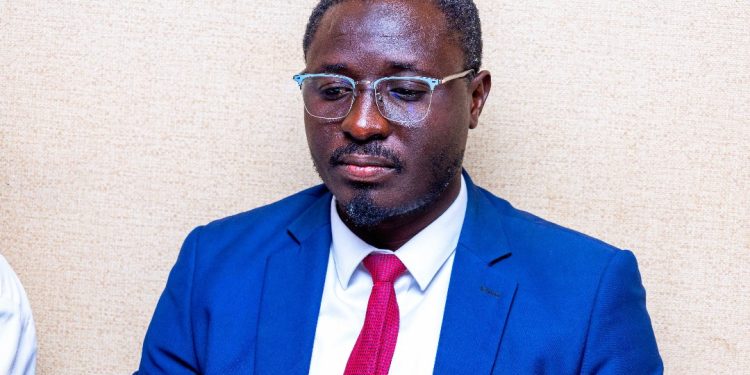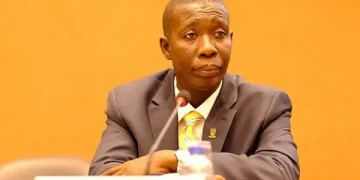Non-Interest Banking & Finance: A Profitable Path by Bank of Ghana
Non interest banking and finance is a system of banking and investment governed by Sharia law, which forbids charging interest (riba) and promotes ethical asset-backed transactions. Globally the industry has grown rapidly total Islamic finance assets are estimated around US$4 to 5 trillion in 2024, expanding at roughly 10 to 15% per year. Major economies have harnessed this growth for example, Malaysia’s Islamic banking sector roughly doubled between 2010 and 2020, and Indonesia’s innovative Islamic microfinance programs boosted access to banking for underserved populations by about 15%.
In Africa, Nigeria and Kenya have issued sukuk (Islamic bonds) and opened shariah windows in banks, demonstrating the model’s ability to mobilize new capital and expand lending. Togo is set to make a partial repayment of CFA 12.121 billion ( US$21.76 million) and a semi-annual profit distribution on the 17th August 2025 on its debut sovereign Sukuk.The transaction is part of its ongoing commitment to its Islamic capital market obligations.
For Ghana, Islamic finance presents a clear opportunity. About 20% of Ghanaians are Muslim and roughly 42% of adults remain unbanked. By offering Shariah-compliant products, banks can tap this large segment while also attracting socially-conscious non-Muslim customers as well. Islamic banking can reduce poverty and ease project financing burdens .It should be viewed from a financial inclusion perspective and not from a religious viewpoint.
In other words, Islamic finance is seen as an economic as well as ethical policy: it is not just about religious compliance it is about economic empowerment and national development. With Ghana’s need for infrastructure investment and SME growth, diversifying into Islamic finance could unravel fresh funding for roads, schools and businesses without resorting solely to high interest debt.
Local entrepreneurs and youth could benefit from new Islamic finance products that match their business cycles from next year as BOG unveils Islamic baking plans. Islamic finance offers Ghana opportunities on multiple fronts. By tapping into Gulf and Asian capital, Ghana can diversify its funding sources. In Kenya, the introduction of Islamic banking windows led to a 7% increase in SME lending, and positioned Nairobi as a regional hub for Middle East investment.
Similarly, Ghana could attract Middle Eastern investors into infrastructure and agribusiness if appropriate products are on offer. Importantly, sovereign sukuk (Islamic bonds) could help fund public projects without adding unsustainable debt. Ghana’s neighbors have demonstrated this as Nigeria’s US$500 million 2019 sovereign sukuk helped mobilize infrastructure financing, boosting credit in Muslim-majority regions by about 5%. By issuing comparable sukuk for roads, railways or power plants. Ghana might raise development funds at competitive rates, since sukuk returns are based on project performance rather than fixed interest.
On the private side, Islamic finance can empower Ghana’s vital SME sector. Ghanaian SMEs represent 60% of GDP, but face obstacles as interbank lending rates are around 27% in late 2024 and only about half of SMEs have ever accessed formal credit. Islamic products can align better with SME cash flows. For example, a Murabaha contract ties repayment to sales revenue, while a Musharaka partnership shares risk. In agriculture and retail industries prone to seasonal income, these features are particularly advantageous.
Empirical cases support this Islamic microfinance in Indonesia improved banking access by 15% for underserved communities and Kenya’s sukuk-financed PPP projects indirectly expanded local business opportunities. Moreover, by offering products that align with many Ghanaians’ ethical and religious values, an Islamic finance sector could bring large numbers of previously unbanked citizens into the formal system.
As one analyst notes, over 42% of Ghanaians remain outside the banking system largely due to distrust of conventional finance. Islamic banking could bridge this gap by providing “financial inclusion especially for SMEs and segments excluded by traditional finance”. In summary, Islamic finance offers both a new revenue stream for banks and a way to empower entrepreneurs and consumers across Ghana’s economy.
Furthermore, sukuk wakalah is an Islamic bond structure is a financial products where the bank issues certificates backed by its assets, raising capital from investors. The proceeds can finance projects tied UN Sustainable Development Goals, illustrating how Islamic capital markets (sukuk) can be used to harnessed to support entrepreneurship and social impact. It exemplifies how sukuk can mobilize large scale financing for SME-related infrastructure and complementing bank loans.
Islamic finance offers Ghana a multifaceted opportunity to expand its economy in a stable and inclusive way. By tapping into alternative funding sources and adopting risk-sharing models, Ghana could accelerate infrastructure development and support its SME sector while aligning finance with societal values. The path forward will require clear regulation, consumer education, and institutional capacity building but Ghana’s recent engagement (including the Bank of Ghana’s commitment to explore non-interest banking) shows strong political will.
Hence thoughtfully implementation of Islamic finance will deepen entrepreneurial support and an asset for national development. A robust Islamic finance sector need not replace conventional finance but can complement it, helping Ghana build a more diverse, resilient and ethically-driven financial system.
Islamic finance offers profit-sharing partnerships and asset-backed contracts as Shariah-compliant alternatives to interest-bearing loans. For example, Murabahah is a cost-plus sale, where the bank buys an asset and sells it to the SME at a marked-up price, and Ijarah is an Islamic lease where the bank buys an asset and leases it back to the entrepreneur. Equity-based products include Mudarabah (silent partnership: the bank provides capital, the entrepreneur manages the business, and profits are shared) and Musharakah (joint venture: both bank and entrepreneur invest capital and share profits/losses).
These risk-sharing models align with SME needs: they eliminate fixed interest costs and let financiers and businesses share upside and downside. A recent overview notes that Islamic banks prefer asset-based instruments like Murabahah and Ijarah for their simplicity, but also highlights Mudarabah and Musharakah as key equity options. (In practice, Islamic banks also use Murabahah and Ijarah extensively for working capital and equipment loans, mirroring conventional loans in effect but differing in contract form.)
The Non-Interest compliant products such as Murabaha, Mudarabah and Musharakah are ways for SMEs to raise working capital and long-term funds without traditional interest. In particular Mudarabah and Musharakah contracts “encourage risk-sharing” and remove heavy collateral burdens, fostering innovation in tech and services startups.
A concrete case is given of a Karachi textile SME that used a Musharakah partnership to buy new machinery whiles sharing profits with the bank allowed the firm to double its production capacity. Islamic fintech (crowdfunding, block chain-based lending) and Islamic microfinance are emerging channels to reach rural and underserved entrepreneurs which illustrates how Shariah finance can expand access for small businesses and the government at large.








